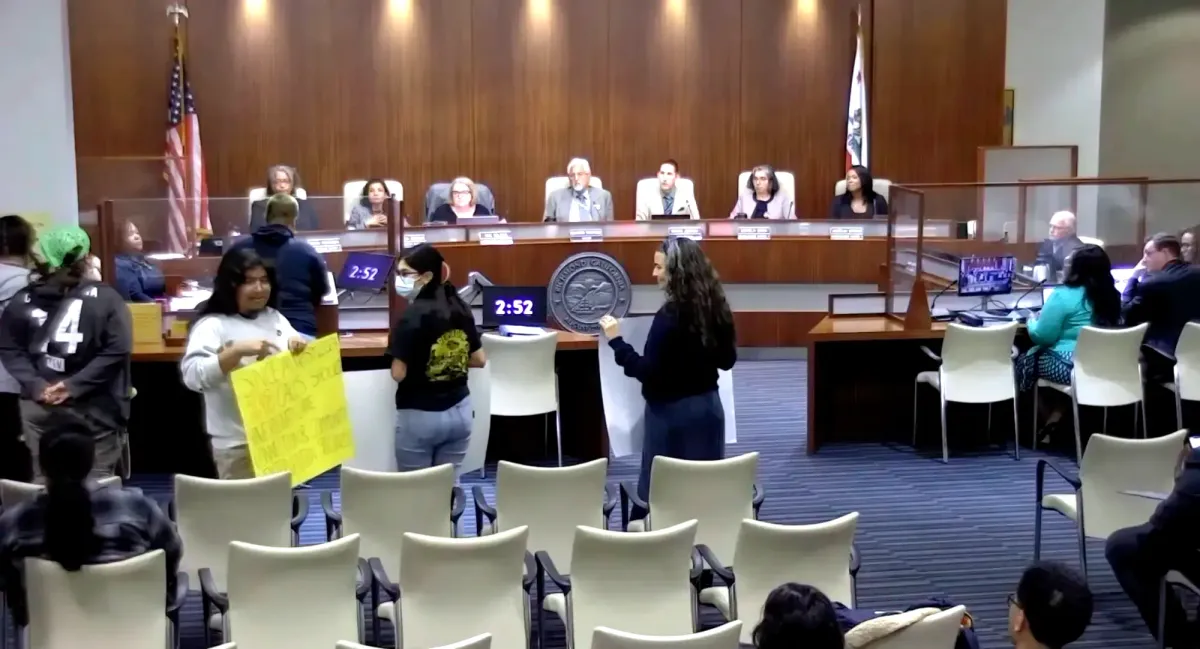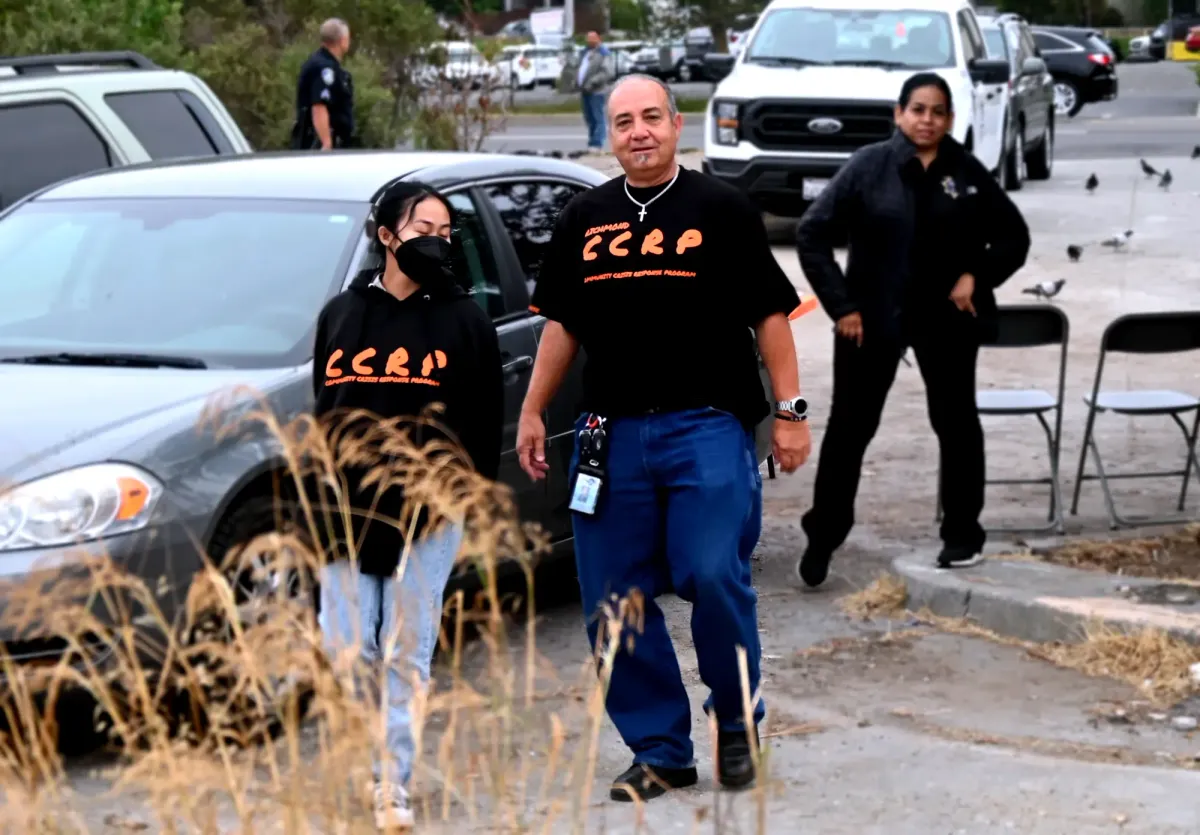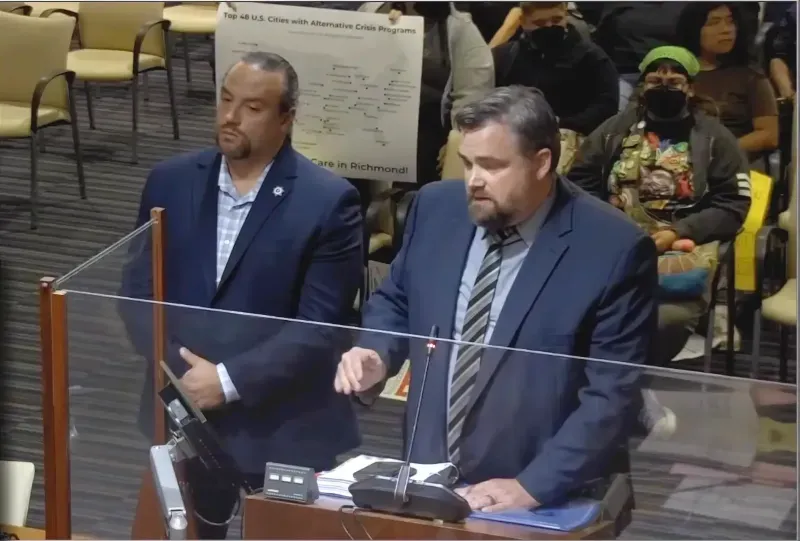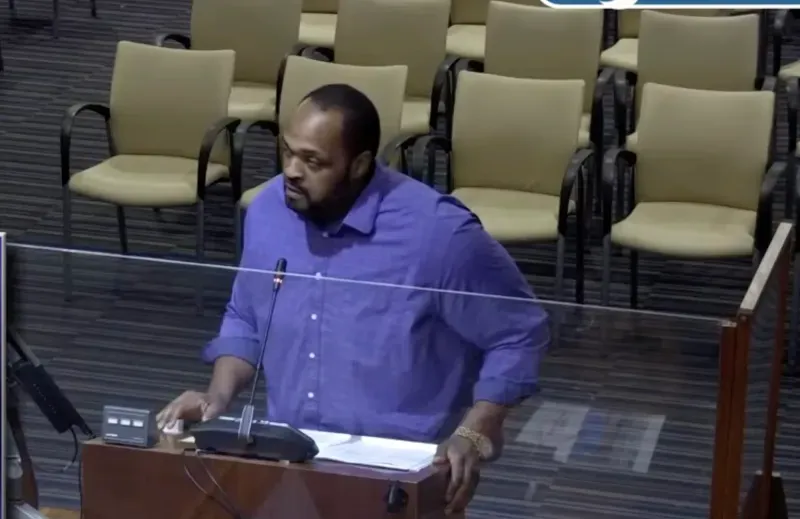

The Richmond City Council upheld a recommendation to place the newly established Community Intervention Specialist (CIS) position under SEIU Local 1021, rejecting an appeal by the Richmond Police Officers Association (RPOA) that sought to fold the position into its own union. Meanwhile, non-sworn civilian staff within the Richmond Police Department have announced plans to leave their current unions and pursue representation under the RPOA.
The position is part of the city’s Community Crisis Response Program ROCK (Reach Out with Compassion and Kindness), which aims to redirect certain non-violent, low-level emergency calls away from traditional police response.
 Grandview IndependentSoren Hemmila
Grandview IndependentSoren Hemmila
Sharron Taylor, Human Resources Director, outlined why the new positions belong with SEIU. According to Taylor, the role is designed as a non-sworn, community-centered position under the Office of Neighborhood Safety, and placing it within RPOA would send a contradictory message to the community.
“It’s imperative to maintain a distinction between police services and the function of the community crisis response program,” Taylor said.
The CIS role, developed following years of community advocacy and budget reallocations from the police department, was assigned to SEIU Local 1021 by the Human Resources Department earlier this year. The RPOA challenged that assignment, arguing that the classification was better aligned with their public safety mission. However, the City’s Employee Relations Officer upheld the SEIU determination in a final decision on March 19, 2025, prompting an official appeal by RPOA to the Richmond City Council.

Jonathan Murphy, the RPOA’s attorney, argued the city failed to bargain in good faith and accused staff of prematurely finalizing the CIS’s union assignment.
“If we don’t know what they’re going to do, how can we possibly know what the community of interest is?” he asked, claiming the city has not defined the job’s scope and has only held one meet-and-confer session.
Richmond Police Officers Association President Ben Therriault said while the union supports the creation of the Community Crisis Response Program, the decision to exclude the Community Intervention Specialist role from RPOA threatens both operational coherence and staff safety. Therriault said the role would overlap with police responsibilities and should be represented within the police union.
“These folks are going to be doing police-type work. It says that right in the job description. We’re talking about a position that’s going to be dispatched by radio, that needs to be integrated with police operations, and that will be out there responding to community crises,” Therriault said.
Kevin Tisdale, president of the Richmond chapter of SEIU, urged the council to recognize the community-focused intent behind the new civilian classification and to uphold Taylor’s findings.
“The community is still awaiting the services from this classification, services that were created by the council direction to meet urgent mental health needs,” Tisdale said. “This is not a police role. It’s a community service role, modeled after successful 8-1-1 and 3-1-1 programs across the Bay Area.”
Community members, advisory board members, and ROCK supporters filled the council chambers and online to voice their support for keeping CIS independent from law enforcement. Overwhelmingly, speakers advocated for a public health-oriented response rooted in care and de-escalation, particularly for mental health incidents and vulnerable populations.
“I called 911 looking for help when my sister needed emotional, physical, medical help after hospitals turned us away,” said Rosie Rendon, a member of the Community Crisis Response Program Advisory Board. “He didn’t know what to do, and he left.”
While the council ultimately reaffirmed the classification under SEIU Local 1021, the debate underscored broader tensions about labor representation within the city’s public safety landscape.

Kito Williams, a jailer with the Richmond Police Department, addressed the council Tuesday night and said over 80 percent of non-sworn police employees have expressed their intent to leave SEIU Local 1021 and seek representation under the Richmond Police Officers Association.
“This decision did not come lightly. It stems from a deep, shared belief among the undersigned employees that our roles, responsibilities, and daily experiences place us in far closer alignment with the mission, operations, and community service focus of the RPOA,” Williams said. We work side by side with sworn personnel, serve the same public safety goals, and operate within the same command structure and environment.”
Williams said the interests and needs of non-sworn police employees are fundamentally different from those of general city employees represented by other city unions.
“We believe they can be better understood and represented by the RPOA. We are hopeful that the city will respect our collective voice and support a smooth and fair transition in accordance with applicable labor laws and meet-and-confer obligations. Our shared goal is to ensure that all City of Richmond employees are represented by the organizations best suited to advocate for their specific classifications, roles, and interests,” Williams said.
In discussing potential next steps for the appeal, City Attorney Dave Aleshire said the RPOA could appeal the council decision to the California Public Employment Relations Board.
“If the RPOA is dissatisfied with the City Council’s decision this evening, then they could bring that to the Public Employment Relations Board and have them review the appropriateness of upholding the city manager’s unit determination. Realistically, that is likely the last step in the process.”
Thanks to our subscribers, who help make this coverage possible.
If you are not a subscriber, please consider supporting local journalism with a Grandview Independent subscription. Click to see our monthly and annual subscription plans.
Copyright © 2025 Grandview Independent, all rights reserved.
